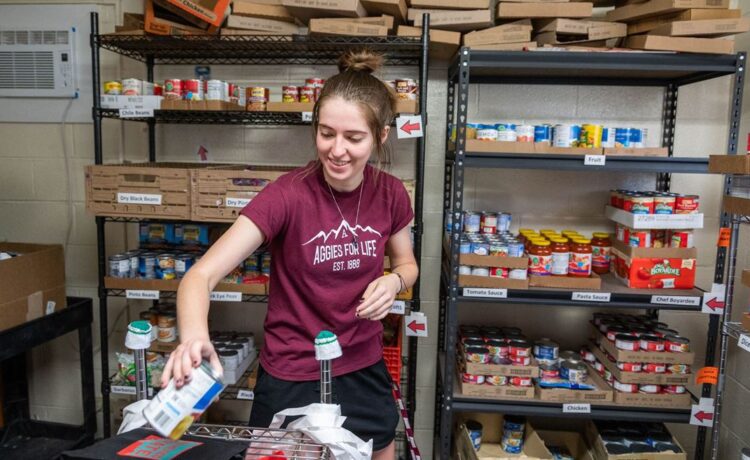NEW MEXICO (KRQE) – Eight New Mexico colleges and universities are getting funding from the New Mexico Higher Education Department to address food insecurity among students, faculty and staff.
A total of $1 million in American Rescue Plan Act funds will be disbursed among the schools as part of Gov. Michelle Lujan Grisham’s Food Initiative. The money will go toward initiatives that demonstrate innovation, including the creation of sustainable on-campus food systems. Examples include growing fresh produce on campus and partnering with culinary arts education programs or local industry.
“Access to nutritious food is a necessity and a cornerstone of academic achievement, particularly for our rural, low-income and historically underserved communities,” Higher Education Deputy Secretary Patricia Trujillo, who oversees the project, said in a news release. “By integrating food sustainability into the long-term culture of our college campuses, we not only nourish bodies but cultivate holistic environments where every student can thrive.”
The following colleges and universities received college food security grants from NMHED:
- $150,000 to Clovis Community College to expand the Campus Cabinet Program, including hosting a hunger awareness campaign, installing snack stations on campus, and expanding community partnerships with local farms to provide fresh produce.
- $235,000 to Eastern New Mexico University – Ruidoso to create “Campus Connections,” a project establishing community kitchens where students can access and prepare nutritious food, take cooking classes, and receive a weekly food box. The program will also develop a hunger task force with area partners and connect students with area resources.
- $125,000 to Navajo Technical University for “Nihits’íís Tah Hózhộ Nahásdlíí’ (Feeding our Spiritual Well-being).” The project will integrate cultural practices and traditional knowledge about agriculture and wild plant identification, plant a raised garden, provide cooking demonstrations, and develop a cookbook. Boxes of nutritious food will also be provided to students, faculty, and staff. Student organizations will also host events emphasizing budgeting for food and destigmatizing hunger.
- $125,000 to San Juan College for “Accelerating Sustainable and Inclusive Approaches to Food Security” to conduct outreach to vulnerable groups, coordinate cross-campus initiatives, conduct a hunger awareness campaign, and collaborate with local farmers and entrepreneurs.
- $220,000 to Western New Mexico University for phase two of their food security and farm program. The “Grow Our Own” program will involve students, faculty, and staff in growing food on campus, integrating academic programs, and partnering with local experts. The program will provide fresh produce to the campus community and provide food cultivation and cooking classes for college and high school students.
- $50,000 to Eastern New Mexico University – Roswell for the “Cosmo’s Cupboard” food pantry. The funding will support existing college, adult education, and early college high school students served by the pantry and expand services to meet the needs of faculty and staff.
- $50,000 to New Mexico State University – Grants to continue the existing food pantry, expand the hoop house garden, launch campaigns to destigmatize hunger, and provide nutritious food and snacks to go.
- $45,000 to the University of New Mexico’s Basic Needs Project to publish and promote the first statewide college basic needs report. Funds will also support outreach and collaboration within the New Mexico Basic Needs Consortium.
A survey by the University of New Mexico’s Basic Needs Project found that nearly 60% of New Mexico college students are food insecure, more than twice the national average. The survey was conducted across 27 public and tribal colleges and universities and over 15,000 participants were surveyed. A 2022 Public Health Nutrition study found that food-insecure college students were more than 40 percent less likely to graduate from college.
Since 2021, the New Mexico Higher Education Department has directed a total of $2.1 million toward improving access to healthy food and nutrition services on college campuses, benefiting an estimated 15,000 students statewide.














